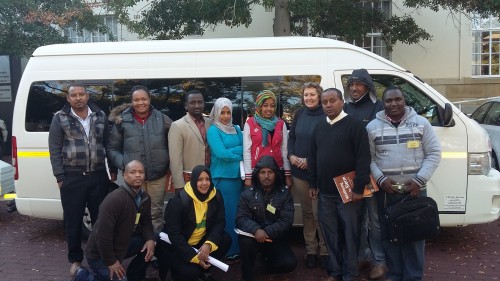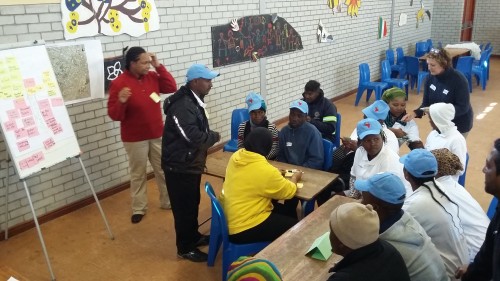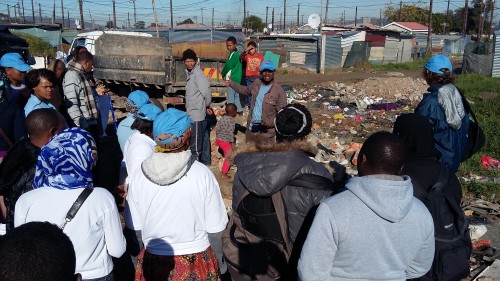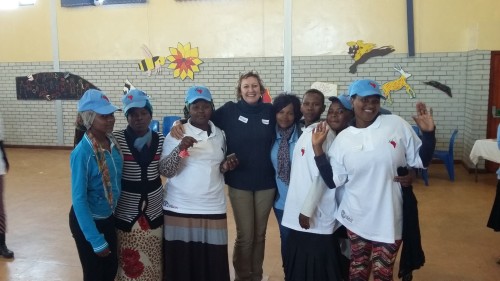RADAR short Course brings International practitioners to assess local community Risks
The Research Alliance for Disasters and Risk Reduction (RADAR) based at Stellenbosch University in South Africa held its Community Risk Assessment Training Short Course between 29 June – 3 July 2015. The course focused on strengthening community-based risk assessment capabilities for disaster management practitioners, teaching them a range of methods for participatory assessment and techniques for multi-stakeholder engagement as well as other quantitative and spatial risk-related data skills.
Eleven participants took part in the short course, 9 of which came from RADAR’s partner institutes from the Periperi U consortium (IRDR ICoE) 7 from Bahir Dar Univeristy, Ethiopia and 2 from Ardhi University, Tanzania. The theory class sessions took place on the first two days of the course, which introduced participants to the principles, practice and ethics of conducting participatory risk assessments, the various tools used to gather information and its role indevelopment planning and risk reduction in informal communities.
On the third day, participants were taken to the informal settlement of Wallacedene, 40km outside of Cape Town to take what they had learnt in class about participatory risk assessments and put it into practice. The participants sat down with community members, asking them questions revolving around their perception of risks they face in their settlement. The participants employed several ‘tools’ which encourage a bottom-up approach of data collection and research engagement which involves those being assessed to write and draw out their experiences on large pieces of paper. These included the use of “problem tress’, ‘livelihood calendars’ as well as ‘community risk mapping’. During this session it was found that the community members were most concerned about the lack of services such as clean and accessible water, electricity and waste removal services, as well as environmental health concerns such as the accumulation of rubbish, flowing of raw sewerage and the scourge of diseased animals and pests such as rats.
The fourth day saw the community members from the previous day lead the participants on a transect walk through their settlement to see first-hand these risks they face on a daily basis. After the transect walk was completed, the course participants and community members met with various local stakeholders such as local government water and waste management, the ward councillor, police sergeant and environmental officer to name a few, to present their research and issues raised during the last two day. This engagement allowed for the community and local government stakeholders to discuss local risk issues, exchanging knowledge and opinions, as well as establishing a base for further engagement and collaboration to address these risks.
To see more photos of the participatory risk assessments and the transect walk, please visit the RADAR Facebook page
The final day saw the participants do presentations of their findings during the community risk assessment, sharing their experiences, discussing the issues raised as well as deliberating on the effectiveness of the assessment, the participatory tools employed, and the stakeholder engagement.
Overall the Short course was considered a great success with the participants to develop new skills and learn new means of gathering risk related research, as well as offering concerned community members an opportunity to give a voice to their issues and challenges. It is hoped that those that attended the short course will take the experiences and lessons learnt home with them and apply them to their local communities, as well as empower the Wallacedene residents to tackle and overcome their risks.
The RADAR short courses happen biannually and the next one will take place in November 2015 (exact dates to still be set).
Fore more information about what the course entails please click here of the flier or contact the short course convener Mrs Patricia Zweig: patriciazweig@sun.ac.za






